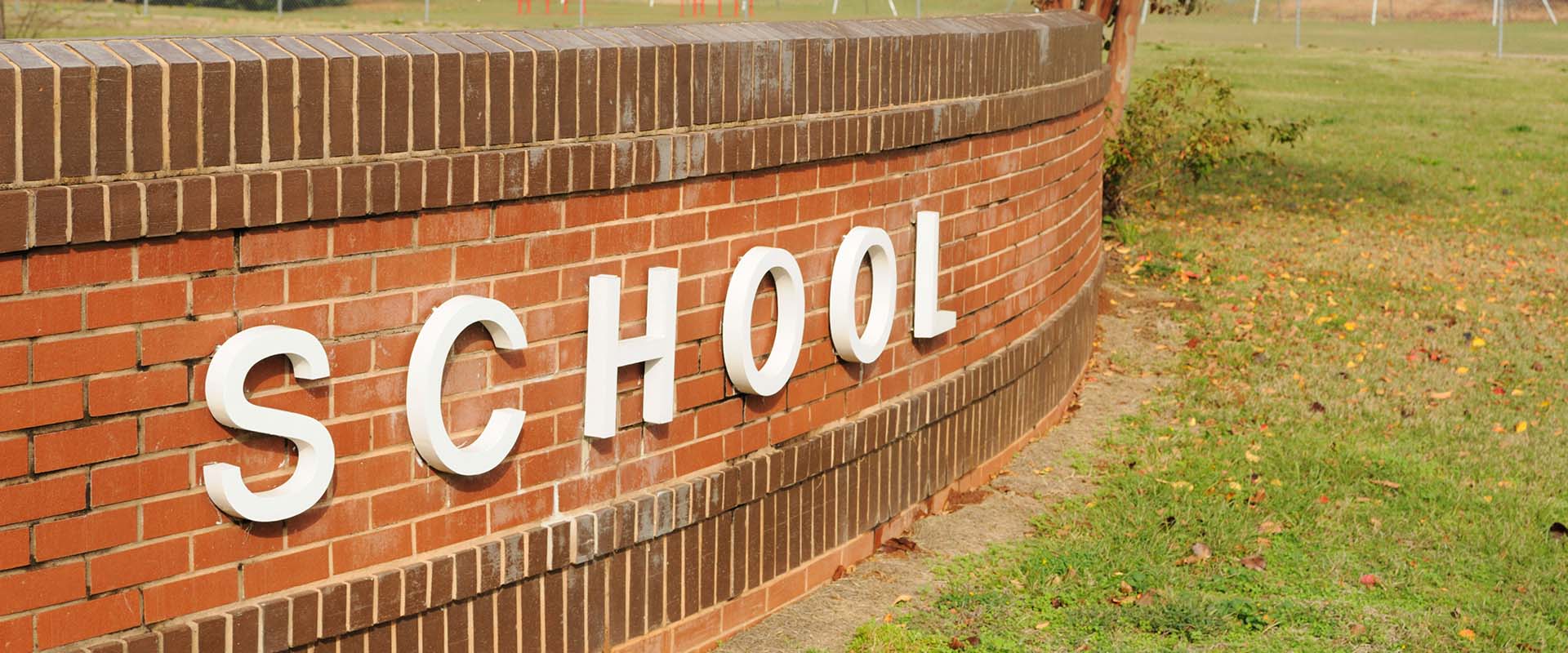SB 760 Ensures All-Gender Restrooms Are Accessible to Students

December 2023
Number 46
On September 23, 2023, Governor Gavin Newsom signed Senate Bill (SB) 760, which requires each school district, county office of education, and charter school maintaining any combination of classes from first grade to twelfth grade, inclusive, to provide and maintain at least one all-gender restroom for student use at every school site, by no later than July 1, 2026.
SB 760 requires identifying signage to be placed outside of all-gender restrooms, and for such restrooms to be well-maintained, fully operational, unlocked, and unobstructed, so they may be easily accessible to all students. This bill also requires such restrooms to be available during school hours and school functions when students are present.
Background
Education Code section 35292.5 requires every public and private school maintaining any combination of classes from kindergarten to twelfth grade, inclusive, to ensure every restroom is open during school hours when students are not in classes, and to keep a sufficient number of restrooms open when students are in classes. This section also requires restrooms to be maintained and cleaned regularly, fully operational, and stocked at all times with toilet paper, soap, paper towels, or functional hand dryers. SB 760 expands on the mandates of this section in an effort to ensure California schools provide a safe and inclusive environment.
In addition to the requirements that at least one all-gender restroom be made available to students and such restrooms be clearly labeled with identifying signage, SB 760 requires the designation of a staff member to serve as a point of contract for the implementation of these guidelines, and the posting of a notice regarding the bill’s requirements in a prominent and conspicuous location outside of at least one all-gender restroom, including the contact information of the staff member designated as the point of contact. Further, this bill permits a school to temporarily close a restroom as necessary for a documented student safety concern, an immediate threat to student safety, or to repair the facility, and thus takes the realities of restroom maintenance and student safety into consideration.
SB 760 approves the use of an existing restroom to satisfy the requirements it sets forth if the restroom in question is in an easily accessible location and otherwise complies with the maintenance and operation requirements previously established by law.
The requirements of SB 760 apply only to “school sites.” The Legislature did not provide a definition of “school site,” but it appears that the intent was that these new requirements apply to schools, and not, for example, entirely separate administrative offices. It may take some time for this aspect of SB 760 to be interpreted more definitively.
SB 760 also adds Section 17585 to the Education Code, requiring that school modernization project applications submitted for approval on or after July 1, 2026, include an all-gender restroom designed exclusively for student use at each school site where an all-gender restroom does not already exist.
Takeaways
School districts, county offices of education, and charter schools alike should begin the necessary planning and designation of restrooms they intend to label as being all-gender, and should begin the process of designating which staff member they intend to select to be the point of contact for the implementation of the guidelines set forth in SB 760, all to ensure such restrooms are open for business on July 1, 2026.
If you have any questions regarding SB 760 and its implementation, please contact the authors of this Client News Brief or an attorney at one of our eight offices located statewide. You can also subscribe to our podcasts, follow us on Facebook, Twitter, and LinkedIn, or download our mobile app.
Number 46
On September 23, 2023, Governor Gavin Newsom signed Senate Bill (SB) 760, which requires each school district, county office of education, and charter school maintaining any combination of classes from first grade to twelfth grade, inclusive, to provide and maintain at least one all-gender restroom for student use at every school site, by no later than July 1, 2026.
SB 760 requires identifying signage to be placed outside of all-gender restrooms, and for such restrooms to be well-maintained, fully operational, unlocked, and unobstructed, so they may be easily accessible to all students. This bill also requires such restrooms to be available during school hours and school functions when students are present.
Background
Education Code section 35292.5 requires every public and private school maintaining any combination of classes from kindergarten to twelfth grade, inclusive, to ensure every restroom is open during school hours when students are not in classes, and to keep a sufficient number of restrooms open when students are in classes. This section also requires restrooms to be maintained and cleaned regularly, fully operational, and stocked at all times with toilet paper, soap, paper towels, or functional hand dryers. SB 760 expands on the mandates of this section in an effort to ensure California schools provide a safe and inclusive environment.
In addition to the requirements that at least one all-gender restroom be made available to students and such restrooms be clearly labeled with identifying signage, SB 760 requires the designation of a staff member to serve as a point of contract for the implementation of these guidelines, and the posting of a notice regarding the bill’s requirements in a prominent and conspicuous location outside of at least one all-gender restroom, including the contact information of the staff member designated as the point of contact. Further, this bill permits a school to temporarily close a restroom as necessary for a documented student safety concern, an immediate threat to student safety, or to repair the facility, and thus takes the realities of restroom maintenance and student safety into consideration.
SB 760 approves the use of an existing restroom to satisfy the requirements it sets forth if the restroom in question is in an easily accessible location and otherwise complies with the maintenance and operation requirements previously established by law.
The requirements of SB 760 apply only to “school sites.” The Legislature did not provide a definition of “school site,” but it appears that the intent was that these new requirements apply to schools, and not, for example, entirely separate administrative offices. It may take some time for this aspect of SB 760 to be interpreted more definitively.
SB 760 also adds Section 17585 to the Education Code, requiring that school modernization project applications submitted for approval on or after July 1, 2026, include an all-gender restroom designed exclusively for student use at each school site where an all-gender restroom does not already exist.
Takeaways
School districts, county offices of education, and charter schools alike should begin the necessary planning and designation of restrooms they intend to label as being all-gender, and should begin the process of designating which staff member they intend to select to be the point of contact for the implementation of the guidelines set forth in SB 760, all to ensure such restrooms are open for business on July 1, 2026.
If you have any questions regarding SB 760 and its implementation, please contact the authors of this Client News Brief or an attorney at one of our eight offices located statewide. You can also subscribe to our podcasts, follow us on Facebook, Twitter, and LinkedIn, or download our mobile app.
Disclaimer: As the information contained herein is necessarily general, its application to a particular set of facts and circumstances may vary. For this reason, this News Brief does not constitute legal advice. We recommend that you consult with your counsel prior to acting on the information contained herein.






